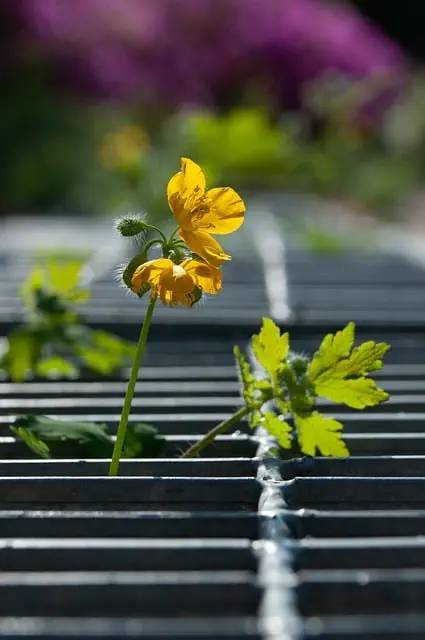Kava tea, from Piper methysticum roots, offers natural anxiety relief without drowsiness, thanks to compounds like kavain and piperine that interact with brain neurotransmitters. Research highlights its safety and effectiveness, comparable to maeng da kratom, a potent strain of Mitragyna speciosa known for stress-relieving properties due to alkaloids like mitragynine. Combining kava tea with maeng da kratom provides synergistic relaxation benefits while requiring responsible consumption.
Kava tea, an herbal drink with a rich history, has gained modern prominence for its potential relaxation and anxiety-relieving properties. Often referred to as the ‘kava root’ or ‘kava plant’, it offers a natural alternative for stress management. This article delves into the science behind kava’s calming effects, exploring its comparison with maeng da kratom, a potent strain known for stress relief. We’ll also discuss the benefits of incorporating kava tea into daily routines, along with potential side effects and its growing role in modern wellness practices.
- What is Kava Tea? An Herbal Relaxant
- The Science Behind Kava's Anxiety-Relieving Effects
- Maeng Da Kratom: A Powerful Strain for Stress Relief
- Benefits of Incorporating Kava into Your Routine
- Potential Side Effects and Precautions
- Exploring Kava Tea's Role in Modern Wellness Practices
What is Kava Tea? An Herbal Relaxant

Kava tea, derived from the roots of the Piper methysticum plant, is a traditional herbal remedy that has gained popularity for its calming effects. Often referred to as “the calm and relax herb,” kava has been used for centuries in the Pacific Islands for its ability to promote relaxation and reduce anxiety without causing drowsiness.
This herbal drink contains compounds called kavain and piperine, which are believed to interact with neurotransmitters in the brain, leading to a state of tranquility. Unlike some modern anxiolytics, kava offers a natural alternative with minimal side effects. Interestingly, it is sometimes compared to maeng da kratom for its potential to alleviate stress and create a sense of well-being, though they originate from different plant families.
The Science Behind Kava's Anxiety-Relieving Effects

The science behind Kava’s anxiety-relieving effects is rooted in its unique chemical composition. Kava, derived from the root of the Piper methysticum plant, contains compounds known as kavapyrones, particularly kainic acid and yohimbinine. Studies have shown that these compounds interact with neurotransmitters in the brain, such as GABA (gamma-aminobutyric acid), to promote a sense of calmness and reduce anxiety. Research suggests that kava can help lower stress levels and improve mood, making it a popular natural alternative for those seeking relaxation without the drowsiness associated with some prescription medications.
Unlike certain other herbal remedies, including maeng da kratom, kava has been extensively studied for its safety and efficacy in managing anxiety. While more research is needed to fully understand its mechanisms of action, existing studies indicate that kava extract can be effective in reducing symptoms of generalized anxiety disorder and social anxiety without significant side effects. This makes kava a promising herbal drink for individuals looking to incorporate natural solutions into their wellness routines.
Maeng Da Kratom: A Powerful Strain for Stress Relief

Maeng Da Kratom, a potent strain known for its stress-relieving properties, is a popular choice among those seeking natural anxiety relief. This specific variety of kratom, scientifically known as Mitragyna speciosa, has gained significant attention for its ability to provide a calming effect without the sedative effects associated with some other herbs. The term ‘Maeng Da’ translates roughly to ‘strong and powerful,’ which accurately reflects its intense effects.
Native to Southeast Asia, Maeng Da Kratom is cultivated and harvested from mature leaves, ensuring a higher concentration of active compounds. Its unique composition includes alkaloids like mitragynine and 7-hydroxymitragynine, which are believed to interact with the body’s opioid receptors, fostering a sense of relaxation without causing addiction or dependence. This herbal remedy has become a game-changer for folks looking for an alternative way to manage stress and anxiety in today’s fast-paced world.
Benefits of Incorporating Kava into Your Routine

Incorporating kava tea into your daily routine can offer a range of benefits, making it a popular choice for those seeking natural ways to manage anxiety and promote relaxation. This herbal drink has been used for centuries in traditional Pacific Island cultures for its calming effects, and modern research supports these ancient practices. Kava is known for its ability to reduce stress and enhance overall well-being without the stimulating effects of caffeine, making it an appealing alternative for those looking to avoid jitters or the side effects associated with other anxiety medications.
One of the key advantages of kava is its potential to alleviate symptoms of anxiety disorders. Studies suggest that regular consumption can help lower stress hormones and promote a sense of calm, offering a natural approach to managing anxiety. Additionally, kava’s anti-inflammatory properties may contribute to physical relaxation by soothing muscle tension, a common symptom associated with chronic stress. When combined with other relaxing herbs like maeng da kratom, known for its potent therapeutic effects, kava tea can create a synergistic blend that enhances both mental and physical relaxation, providing an effective and gentle way to navigate daily stressors.
Potential Side Effects and Precautions

While kava tea is generally considered safe for consumption, it’s important to be aware of potential side effects and precautions. Some individuals may experience mild gastrointestinal distress, such as nausea or stomach discomfort, especially when consuming large amounts. It’s also recommended to exercise caution if you’re pregnant, nursing, or have a history of liver or kidney issues, as kava tea can affect these organs.
In addition, those with existing mental health conditions, particularly depression or anxiety disorders, should consult their healthcare provider before incorporating kava tea into their routine. Interestingly, while kava is often compared to maeng da kratom in terms of relaxation and anxiety relief, scientific research on its effects is limited compared to kratom. Therefore, personal experiences may vary, and it’s crucial to monitor your body’s response closely.
Exploring Kava Tea's Role in Modern Wellness Practices

In recent years, kava tea has emerged as a popular herbal remedy in modern wellness practices, offering a natural alternative for relaxation and anxiety relief. This ancient beverage, derived from the root of the Piper methysticum plant, has been used for centuries in the Pacific Islands for its calming effects. With increasing interest in holistic health, kava tea has gained traction as a go-to drink for those seeking stress alleviation without the use of pharmaceutical interventions.
One notable variety that has caught the attention of wellness enthusiasts is Maeng Da Kratom, known for its potent properties. The term ‘kratom’ refers to several species within the Mitragyna genus, and Maeng Da is renowned for its high levels of mitragynine, a compound shown to interact with opioid receptors in the brain, providing both analgesic and psychoactive effects. This unique characteristic makes it a sought-after option for individuals looking to unwind and find respite from anxiety while also enjoying a refreshing herbal beverage.
Kava tea, an ancient herbal remedy, has gained modern popularity for its relaxation and anxiety-relieving properties. By understanding the science behind its effects and exploring its role in wellness practices, we can appreciate the potential benefits of incorporating kava into our routines. While maeng da kratom stands out as a powerful strain for stress relief, it’s essential to be aware of potential side effects and take precautions. As research continues to uncover kava’s therapeutic potential, this herbal drink offers a natural and soothing approach to navigating life’s challenges.






